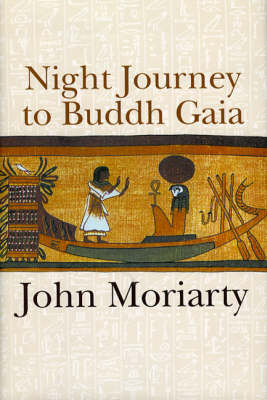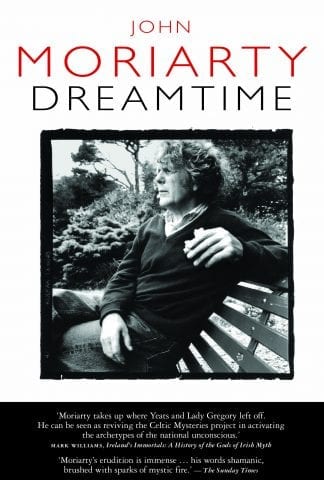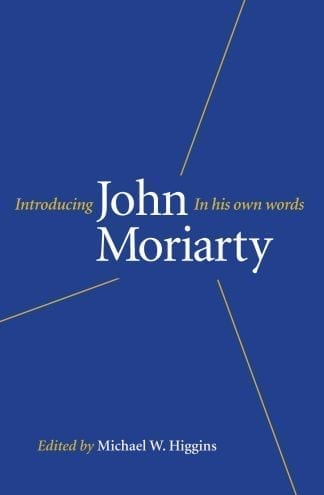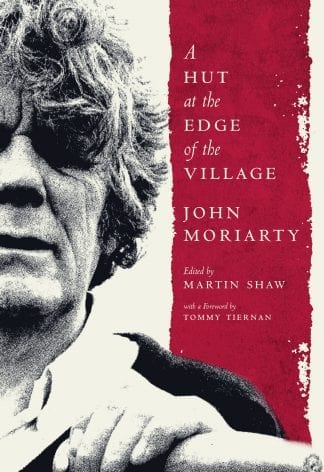
Night Journey to Buddh Gaia
By: John Moriarty
Publication Date: October 2006
€40.00
Night Journey to Buddh Gaia by John Moriarty
In a letter to his friend Charles Ford, Jonathan Swift wrote: ‘I have finished my travells and I am now transcribing them: they are admirable things and will wonderfully mend the world.’ In Night Journey to Buddh Gaia, John Moriarty, like Gulliver, is a traveller to exotic places: ancient Egypt, Sumeria, Babylonia, Canaan, Judaea, ancient Greece, ancient Rome, medieval, Renaissance, Enlightenment and modern Europe, ending in the Waste Land of our own making. Calling them psychles (rather than cycles) of Western history, and seeking to mend them as he does so, Moriarty takes the reader on an exodus. Emerging, he concludes that our cultural pasts still sponsor ‘ecological havoc’, and calls for a Naissance not a Renaissance. He believes that we must be radically original, and refound city and psyche, the one a sacramental simulacrum of the other.
As the ancient Egyptians enacted a night journey through their Underworld to Sunrise, the scarab beetle pushing its ball of clay before it, this book charts a night journey through the darkness of nature and culture to Earthrise. Seeing our planet coming up over a lunar horizon, Moriarty names it Buddh Gaia (from the Sanskrit and Greek), suggesting enlightenment – future, present and back through the geological ages.
Here is a book in profound dialogue with the mystics and master spirits of civilization: Sophocles, Malory, Montaigne, Shakespeare, Milton and Racine are enlisted, with Buddha, Eckhart, Traherne and Browne; Blake, Hoderlin, Wordsworth, Coleridge, Shelley and Melville; Pascal, Newton, Kant, Nietzsche and Heidegger; Rilke, Conrad and Yeats; Stevens, Lawrence and Muir; Picasso, Dylan Thomas, Geoffrey Hill and Robert Lowell. It follows its Bright Angel Trail down a Karmic Canyon to the depths of mind, engaging with the roots of language, mythology and archetype, with the nature of belief and un-belief, forging tools with which to think and perceive.
Whether rehearsing a personal Passion Narrative, orchestrating songs of origins, or in his inspired readings, Moriarty bequeaths to us a wisdom literature. As Europeans seek to re-imagine themselves, Night Journey to Buddh Gaia might also be seen as a possible prelude to a European constitution.
‘John Moriarty is Ireland’s most outstanding philosopher-theologian since Bishop Berkeley in the eighteenth century.’ – Paul Durcan
‘It is hard to convey the sheer erudition and richness of content of John Moriarty’s remarkable and epic work … the voice of a major contemporary figure in Irish literature.’ – David Lorimer
‘In a land of extraordinary literary talent, I think John Moriarty is Ireland’s most important writer since Samuel Beckett.’ – Thomas Moore
‘John Moriarty weaves an extraordinary tapestry of myths and memories … He has none of the dangerous certainty of the wide-eyed mystic and writes with grace and subtlety.’ – Fintan O’Toole
‘White-water rafting with John Moriarty down the canyons of the collective psyche, readers will have their preconceptions and perceptions scoured to a dazzle … Even dissenters like myself can be profoundly grateful to John Moriarty, for he has gone farther down the backstairs to hell and up the front steps to heaven than most of us dare to follow.’ – Tim Robinson
ABOUT THE AUTHOR
JOHN MORIARTY was born in north Kerry in 1938 and educated at Listowel and University College Dublin. He taught English Literature at the University of Manitoba in Canada for six years, returning to Ireland in 1971. In June 2006 he received an honorary D.Litt. from the National University of Ireland. He is the author of Dreamtime (1994, revised 1999), the trilogy Turtle Was Gone a Long Time: Crossing the Kedron (1996), Horsehead Nebula Neighing (1997) and Anaconda Canoe (1998), Nostos, an autobiography (2001) and Invoking Ireland (2005, revised 2006).
| ISBN | 9781843510895 |
|---|
| Weight | 1.5 kg |
|---|---|
| Dimensions | 240 × 160 mm |
| Publication Date | October 2006 |
| Format | Hardback, 704pp |




Lilliput Press –
“One of this mythopoeic writer’s last works, this enormous volume of over six hundred pages follows the path he has opened up in similarly expansive earlier works. He repeats much of his incantatory prose, his rather rambling explorations of the breakdown he diagnosis in the Cartesian mentality and the healing possible, in his earnest, serious, and chanted recommendations, in returning to a psychic healing. How? Easier said, and often by him told at either hypnotic evocation or wearying pace depending on your receptiveness, than done.
Moriarty earnestly chides the Western mindset; this book seeks to take us underworld, into twelve gates that he hopes will free us from the typical way we see the world and ourselves. Like Blake or Yeats, he draws upon his own reworking of stories from many traditions, and he integrates these into his own idiosyncratic philosophy in the truest sense of that noun. His care for what he undertakes shows, but his repetitive prose style that conjures up his inner shaman may bewilder readers wanting his antidote in plain words. I have reviewed many of his earlier books on Amazon (US at times) and this new one perhaps fits better a meditative dipping into and out from; it’s not the type of book to race through from one cover to the other.
He journeys into “the precosmic Abyss,” then the Cedar Forest from Gilgamesh, the Sandbank of Apophis of the Egyptians, the Pit in the cave of Lascaux of primitive painting, Pasiphae’s calving ground from the Minoans, Dionysus’ theatre from Athens, the Roman Colosseum, the Green Chapel of Sir Gawain, Elsinore’s cemetery from Hamlet, Moby Dick’s deck of the Pequod, Arnold’s Dover Beach, and, finally, Auschwitz. By entering these dark places, he wishes to re-emerge wholly “to a place of civic and psychic refounding.” (18) I’d not recommend this to a newcomer. Start with his early work of imagination, Dreamtime, or Invoking Ireland for a cultural concentration on one aspect of what consumed his later life, the search for the sundered unity beneath our fragmented waste land. It’s not a journey many readers may have the fortitude and the stamina for, as Moriarty has few peers in his depth of knowledge and his inexhaustible manic passion to share it with whomever wanders by. But, if this method appears less mad and more convincing than the more blatant pop psychology and New Age nostrums beloved by many of lesser mental fitness, than sample Moriarty for yourself.” JOHN L MURPHY